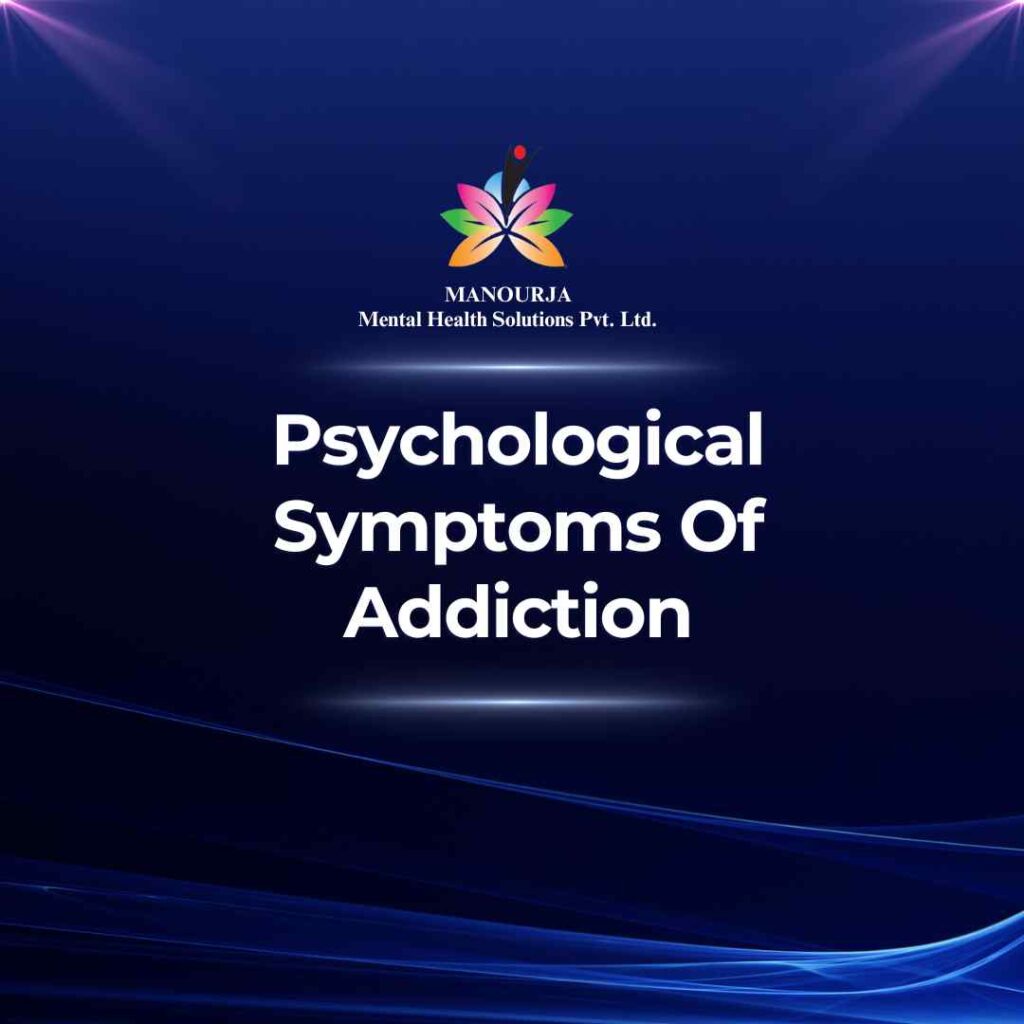Psychological Symptoms of Addiction

Addiction is a complex condition that goes beyond physical dependence, encompassing a range of psychological symptoms that impact an individual’s thoughts, emotions, and behaviors. Understanding these psychological aspects is crucial for comprehensive intervention and support.
Here are key psychological symptoms of addiction:
- Compulsive Cravings: Individuals often experience intense, uncontrollable urges or cravings for the substance or behavior, becoming a focal point in their thoughts.
- Loss of Control: A pervasive sense of powerlessness and an inability to control the frequency or intensity of substance use or engagement in addictive behaviors.
- Denial and Secrecy: People struggling with addiction may engage in denial, downplaying the severity of their problem, and often keeping their addictive behaviors a secret from others.
- Preoccupation with Use: Significant mental energy is dedicated to thinking about the substance or activity, leading to preoccupation that interferes with daily functioning.
- Distorted Thinking: Addiction can warp cognitive processes, leading to distorted thinking patterns, irrational beliefs, and justification for continued substance use.
- Increased Tolerance: As tolerance builds, individuals may believe they need more of the substance or engagement in the behavior to achieve the desired effect, contributing to a vicious cycle.
- Escalating Use Despite Consequences: Continued substance use or engagement in addictive behaviors persists despite negative consequences in personal, professional, or social aspects of life.
- Mood Swings: Fluctuations in mood are common, with individuals experiencing highs during substance use or engagement in addictive activities followed by periods of depression or anxiety.
- Anxiety and Restlessness: Anxiety and restlessness often accompany cravings and withdrawal, contributing to the compulsion to use substances or engage in addictive behaviors.
- Depression: Prolonged substance abuse can lead to depressive symptoms, creating a dual challenge of managing both addiction and mental health issues.
- Isolation: A tendency to withdraw from friends, family, and social activities, leading to increased isolation and a reduced support network.
- Inability to Fulfill Responsibilities: Neglect of personal, professional, or educational responsibilities due to the preoccupation with addiction.
- Loss of Interest: A diminishing interest in previously enjoyed activities, hobbies, or relationships as the addiction takes precedence.
- Cycles of Guilt and Shame: Individuals often experience intense feelings of guilt and shame, especially after episodes of substance use or engaging in addictive behaviors.
- Compromised Decision-Making: Impaired cognitive function and compromised decision-making abilities, leading to risky behaviors associated with addiction.
Understanding the psychological symptoms of addiction is vital for developing tailored interventions that address not only the physical dependence but also the intricate web of thoughts and emotions that contribute to the perpetuation of addictive behaviors. Comprehensive treatment approaches often include therapeutic interventions to address these psychological aspects and support individuals on their path to recovery.
At MANOURJA, we believe in the transformative power of counseling. Our experienced therapists offer a safe and supportive space where you can explore your thoughts, emotions, and challenges. Through personalized counselling sessions, we’ll work together to develop coping strategies, build resilience, and achieve lasting positive change. Discover the path to a healthier, happier you with MANOURJA counselling services.
MANOURJA Rehabilitation Services
At MANOURJA, we’re dedicated to helping you in rebuild your life, after difficult times. Our rehabilitation services focus on understanding what you need to move forward, whether you’re recovering from addiction, trauma, or any psychological – social challenges. We create personalized plans, that are all about helping you, regain your strength and find hope again. With a caring team by your side, you’ll have the support to make real progress and take steps toward a brighter, healthier future
